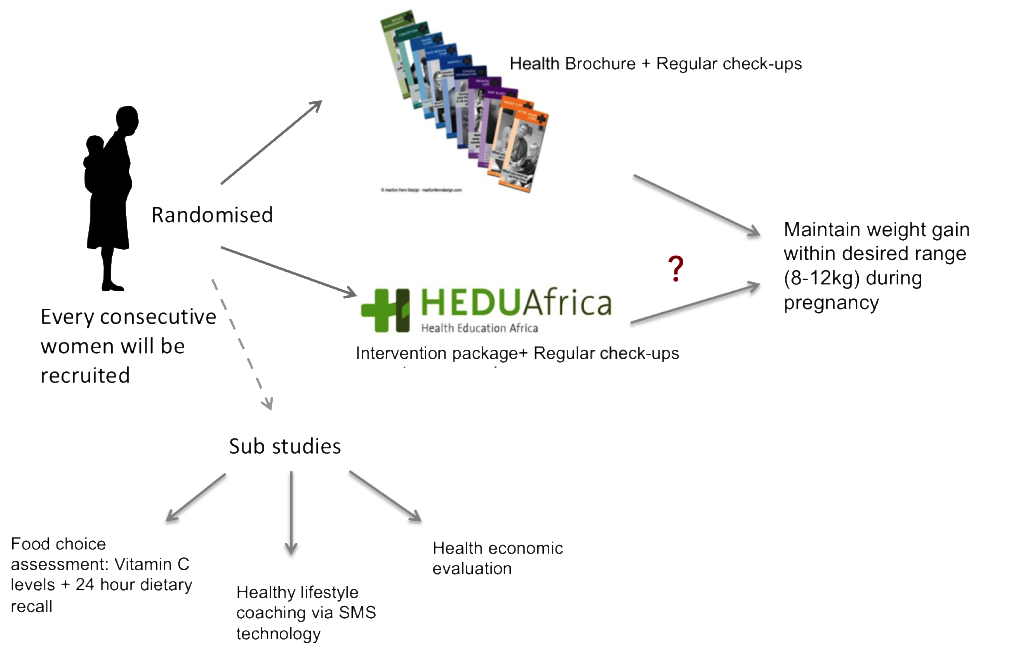Project update:
Currently the study is screening as well as recruiting participants. In total, to date, 438 participants are screened of which 77 were recruited into the study, from both clinical sites.
 Study design:
Study design:
The PROTECT-AFRICA Study is a multi-centre, appropriately powered, randomised control trial of an integrated, information technology-based educational Intervention programme, to minimise the risk of excessive weight gain in overweight (but not obese) pregnant African women versus an enhanced form of usual care. The study will involve 480 participants from two primary care clinics in Soweto and Cape Town. The primary endpoint will be the proportion of participants who gain > 12kg from 16 weeks to delivery. Key secondary endpoints for the mother is a change in BMI index, change in health knowledge, change in food choices, plasma micronutrient levels (vitamin C and folic acid), body composition, body perception, change in systolic and diastolic BP, and number of caesarean births, treatment for infection post-delivery, the occurrence of obstetric haemorrhages and the effect of health coaching via SMS technology (the SMS content will be based on the content from the video’s on the HeduAfrica site). Furthermore, the study endpoints for the newborn include, size of infant (weight), Apgar score, blood pressure and plasma vitamin C levels.
A prospective health-economics design analysis will examine the potential cost-benefits of the intervention to significantly reduce the proportion of pregnant women experiencing excessive weight gain (with associated adverse health outcomes) from a health service payer perspective. Data will also be extrapolated to a whole-of-community and health system-wide perspective.
If proven successful and associated with cost-benefits, the PROTECT-AFRICA intervention will provide an important opportunity to limit excessive weight gain in pregnant women in a low-income setting.